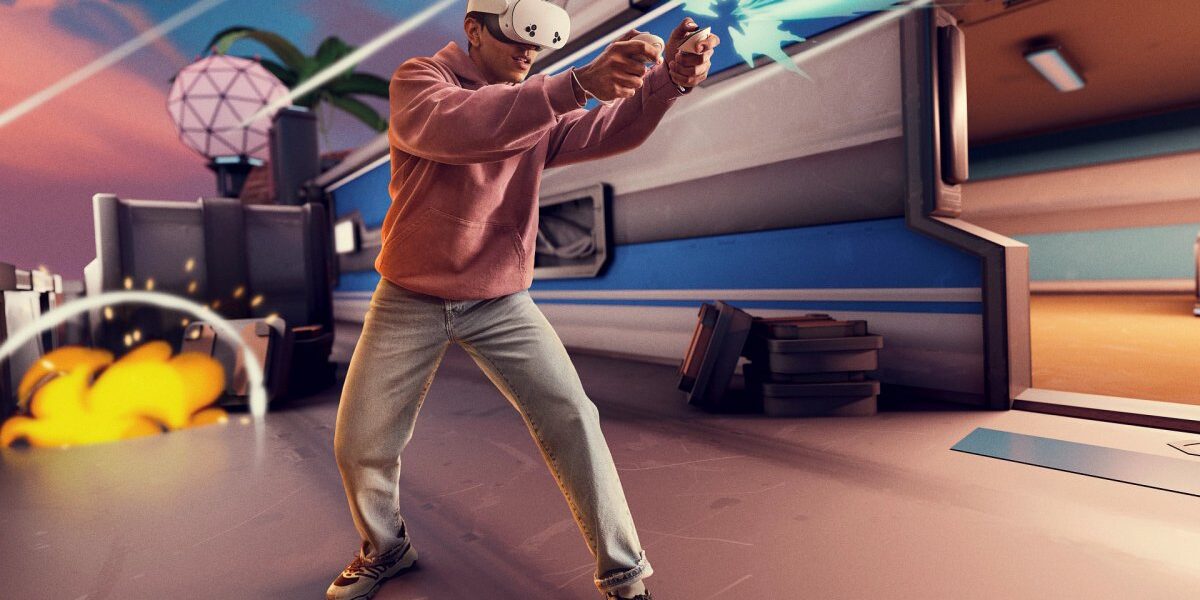If you didn’t become a VR gamer in 2024, you probably never will
Like many humiliated tech writers, I have been guilty of writing those seven little words that can haunt you for the rest of your career: “This was the year VR took off.”
Yes, a lot of us wide-eyed armchair analysts have fallen victim to this optimism trap over VR’s long lifespan. Half-Life: Alyx finally brings a complete gaming experience to a headset? VR has taken off. PlayStation introduces its own plug-and-play device? We’re off to the races. Meta invests heavily in games and releases a wireless device that makes them easy to play? It’s all happening! Of course, all of those lofty predictions tend to look like deflated balloons six months later.
So this year, I’m not going to give in. I am not here to tell you that 2024 was the year that VR gaming finally positioned itself for mainstream success. I already kind of did that in 2023 when I wrote about how much developers reinvigorated the tech at the tail end of a rocky year. So instead, I’m going to throw a decade of hope out the window and be pragmatic with you: 2024 was a fantastic year for VR games, and the fact that it still wasn’t enough to win over skeptics means that nothing will.
2024 in VR gaming
The outlook for VR gaming looked fantastic coming out of 2023’s holiday season, which completely upped the ante for platforms like the Meta Quest 3. Asgard’s Wrath 2 and Assassin’s Creed Nexus VR were both standout titles that showed how far the tech had come. While Sony had already seemingly given up on the PSVR2 by then, there was a sense that Meta’s investments would continue to pay off when it came to landing great games.
That’s precisely what happened over the last 12 months. This year, I have more VR games in my personal top 20 games of the year than ever before. That list starts with Batman: Arkham Shadow, which has unseated Half-Life: Alyx as the tech’s crown jewel. The full-fledged Batman game adapts just about every feature of Rocksteady’s Arkham series to VR to create the series’ best title since Batman: Arkham Asylum. It is leagues above Rocksteady’s own console release this year, the critically panned Suicide Squad: Kill the Justice League, proving that a great VR game can even outdo a console one.
That’s only one highlight, though. My personal favorite this year is Thrasher, a VR follow-up to rhythm cult classic Thumper. It’s a phenomenal successor, creating a psychedelic music game that calls back to arcade classics like Tempest 2000. It’s one of the best experiences I had in gaming this year. Similarly, I was blown away by Cyan Worlds’ astonishing Riven remake. The project beautifully adapts a point-and-click classic to VR in a way that feels natural. It’s a match made in heaven, as VR makes the off-kilter weirdness of the world that much more enveloping.
That momentum carried all the way into December. This month, VR users have gotten access to two major releases in Behemoth and Alien: Rogue Incursion. The former is an impressive action RPG that has the tone of Skyrim and the scale of Shadow of the Colossus, while the latter is a confident shooter that effectively brings the action of Aliens to VR.
That’s already a solid chunk of games, but it only scratches the surface of what’s been a great year for headset owners. Metro Awakening, Human Fall Flat VR, Metal: Hellsinger VR, Triangle Strategy VR, Trombone Champ: Unflattened, and Arizona Sunshine Remake are just a few examples of high-quality games that could pad out any backlist for a few months. Heck, I even got some fun cardio out of Just Dance VR.
There’s a sense that the tech is evolving, and its games along with it. This year saw the release of the Apple Vision Pro, which opened the doors for new experiences with mixed reality. Games like Super Fruit Ninja and Synth Riders offered basic play, but they hark back to the exciting early days of small-scale VR experiments. That momentum is already set to continue in 2025 starting with Resolution Games’ Gears & Goo, a tower defense game that lets players pick units up with a simple gesture and plop them on a battlefield. It’s a surprisingly responsive game that’s fun to fiddle with (in the rare instance that you actually have a Vision Pro).

Won’t get fooled again
With all of that, you might think I’d be tempted to once again proclaim that 2024 was the start of a new era for VR. Well sorry, but fool me eight times, shame on me. In fact, I’m coming out of 2024 more pessimistic than ever about VR’s staying power. That feeling, ironically, comes from Batman. When it was announced in May, the reception to Arkham Shadow wasn’t kind. Fans bemoaned the series’ turn to VR, showing that even a big franchise wouldn’t be enough to win fans. With each new press beat, Arkham Shadow looked more promising, but the sentiment remained unchanged. Even once it launched to critical praise, that didn’t serve as a tipping point — nor did bundling it with the more cost-effective, lightweight Meta Quest 3S.
How many times can a VR game gain universal praise and still struggle to create converts? Asgard’s Wrath 2 ended 2023 as one of the year’s best-reviewed games, rubbing shoulders with the likes of Diablo 4. Batman is in a similar spot this year (ironically right next to Diablo 4’s Vessel of Hatred expansion, per Metacritic). When the tech is cheaper and more comfortable than ever, and the games are as good as they are on any traditional platform, what more can a company like Meta do?
The truth may just be that VR has hit its ceiling. When players say they don’t want to wear a headset to play a game, they aren’t bluffing. Year after year, they’ve proven that no headset, big franchise, or well-received game is going to change their mind. PlayStation couldn’t do it, Apple is struggling to do it, and judging from the fact that it shut down one of its biggest studios this summer, Meta can’t seem to fully do it either.
So, I don’t hope that VR takes off, growing publishers’ ambitions to unrealistic degrees. Instead, I hope that companies learn to enjoy where they’re at now. Design great games around the player base that exists, not the theoretical one that’s yet to be won. If Meta can keep doing that instead of dabbling in the murky waters of infinite growth, VR gaming could comfortably remain in a happy niche for a while longer. As long as it’s there, I’ll keep coming back to it. I don’t care if anyone else joins me anymore.




